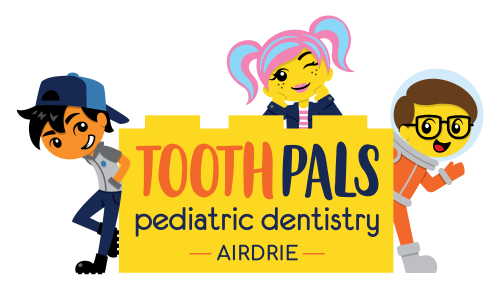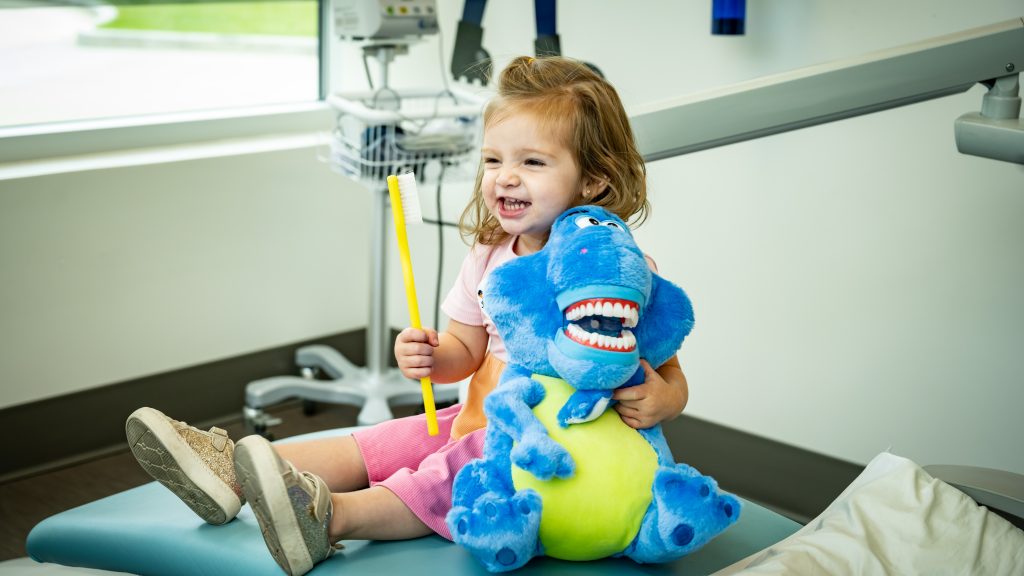Has your child ever made strange clicking or scraping sounds while sleeping? This may not seem like a large red flag, but these sounds may be indicators that your child is grinding his/her teeth, a routine that children go through that is often misdiagnosed or overlooked. If teeth grinding goes untreated, it may impact your child’s dental and general well-being.
As a parent, knowledge is your best friend in protecting your growing smile.
What Is Teeth Grinding (Bruxism)?
Bruxism is the clinical term for grinding, gnashing, or clenching of teeth. Bruxism can occur during the day (awake bruxism) or during sleep (sleep bruxism), which is when it’s more difficult for parents to detect. Bruxism is very common, as most children will grind their teeth at some point in childhood, particularly between the ages of 5 and 10.
Many parents of children between the ages come to the pediatric dentistry in Airdrie for help with grinding issues. For some children, teeth grinding can be a temporary problem, but ongoing grinding can often have lasting impacts if not taken care of.
What are the Treatment options available?
When looking into potential treatment options, one of the first things to be considered is whether or not they have received any preventive dentistry for kids in Airdrie.
Preventive dentistry for children identifies and diagnoses conditions like bruxism early, and works with the circumstances involved in the child’s bruxism and monitors them closely. Pediatric dentists have a lot of treatment options that cater to a child’s needs in a comfortable manner, while working with the child to create and maintain healthier oral habits.
What Causes Teeth Grinding in Children?
The causes of teeth grinding can be unclear. In fact, what causes teeth grinding in children can vary from child to child.
It could range from emotional stress, the discomfort of misaligned teeth, or perhaps a natural reaction to growth-related events like teething or ear infections. What is essential is finding out why they are grinding to be able to find sufficient solutions.
Signs of Teeth Grinding in Kids
Most parents won’t know there is a grinding problem with their child unless they hear it for themselves. But there are several signs that can help parents identify the problem before it becomes major. Signs include sore jaws, sensitive or flattened teeth, headaches, and broken sleep. Other signs of teeth grinding in kids can include difficulty chewing or having unexplained facial tenseness.
How to Know if Your Child Is Grinding Their Teeth
If teeth grinding is allowed to go untreated, the effects of teeth grinding on children will not be limited to just tooth wear. But there are signs you can watch for:
- A grinding or clicking sound while sleeping
- Complaints of a sore jaw or face in the morning
- Worn-down, chipped, or sensitive teeth
- Headaches or earaches without a clear reason
- Trouble sleeping or waking up frequently at night
Going to a pediatric dentist near you can help to ensure that the effects of dental grinding are kept to a minimum before they are allowed to become a long-term dental issue.
Why You Shouldn’t Wait?
There is a difference between child teeth grinding in sleep and grinding teeth in general, which is why parents should act immediately and judiciously. Grinding teeth when sleeping can have real consequences on your child’s sleep and oral development. However, persistent bruxism can lead to serious consequences, including:
- Tooth damage: Excessive grinding can wear down tooth enamel, chip teeth, or cause increased sensitivity.
- Jaw problems: Constant pressure can lead to jaw stiffness, TMJ disorders, and chronic facial pain.
- Sleep disturbances: Grinding can disrupt sleep quality, leading to fatigue and mood changes during the day.
- Headaches: The pressure from clenching can result in tension headaches or ear pain.
So while it might seem harmless at first, untreated bruxism can seriously impact your child’s oral and emotional health.
How to Stop a Child From Grinding Teeth?
Wondering “how to stop child from grinding teeth effectively”? The best approach involves a combination of behavioural changes, stress management, and professional dental support. Introducing a relaxing bedtime routine, reducing screen time, and eliminating caffeine can help reduce nighttime tension. If needed, your pediatric dentist may suggest a mouthguard for protection while sleeping.
When to Take Action?
If your child is grinding teeth more than occasionally, it’s time to act. Early detection and consistent care are the best ways to protect their growing smile. Frequent follow-ups with a dental professional help track any changes in bite alignment or jaw development. The right approach can prevent bigger issues from developing later in life.
Protect tiny teeth today- for Brighter, Healthier Smiles tomorrow!
Even though teeth grinding in children is common, it should never be ignored. By recognizing early signs, understanding potential causes, and getting expert help, you can prevent lasting dental problems. Whether it’s stress-related or bite-related, early care ensures your child grows up with a healthy, confident smile.
At Toothpals Pediatric Dentistry, we specialize in gentle, child-focused dental care to help your little ones feel safe and supported. From regular check-ups to customized treatment plans, our team is here to guide your child every step of the way. If you’re worried about your child’s grinding habits, don’t wait- book an appointment today and let us help you protect their precious smile.

